NAPA International Festival 2020: ‘Every touch etches a memory’
Sri Lankan dance troupe explores ‘taboo of touch’ through contemporary art
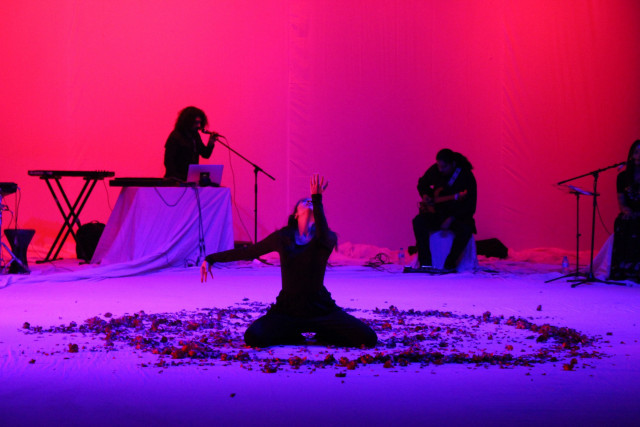
NAPA International Festival 2020: ‘Every touch etches a memory’
On its third night, the International Theatre Festival taking place at NAPA hosted the Colombo-based Natanda as it exhibited a distinctive fusion of traditional Kandyan with yoga and ballet and also challenged its dancers to express their individual personalities and bodies in a contemporary performance orbiting around the theme of ‘touch.’
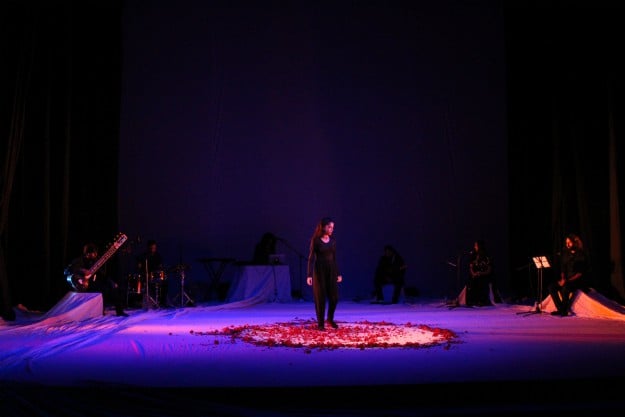
The 70-minute- long piece, a visual treat, was a play of silhouettes and dramatic lighting stimulating a new emotion every time. Flexing like Kaleidoscope, in splinters of hot pink and black, the hoofers, with defined moves, communicated with the audience on a different level.
Rejuvenating the metaphorical power of dance, the act propelled the audience to sense, feel and make personal interpretations as the performance revealed the pain of abusive touch, vitality of an inter-personal touch and comfort of a caring touch.
Reflecting upon cultural aspects of touch – that offered interesting dynamics to the idea execution overall — the act ‘touched upon’ the emotional imprint of abusive, conducive and reciprocal touch as it being the language of communication between humans.
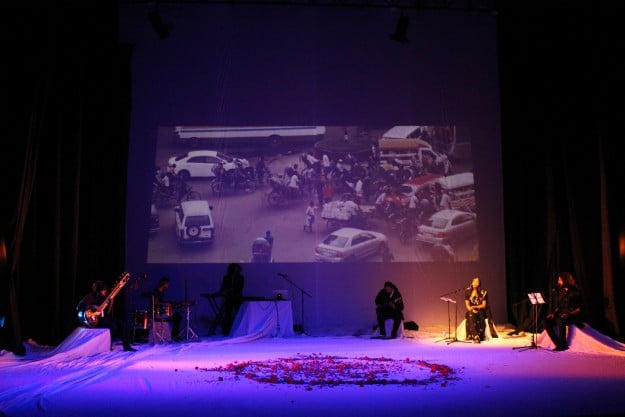
Upholding to another stigma that is often brushed under the carpet, Natanda’s contemporary art also sets forth the plight of untouchables, the oppressed communities that are often subdued because of their gender, disability, poverty or caste. The play posits a question loud and clear: We don’t touch others we feel alienated from – is this judgment a question of individual choice or a take on society?
Simultaneously, the play shed light on touch deprivation that arises when someone needs care but remains neglected, instigating what we call harassment or abusive touch.
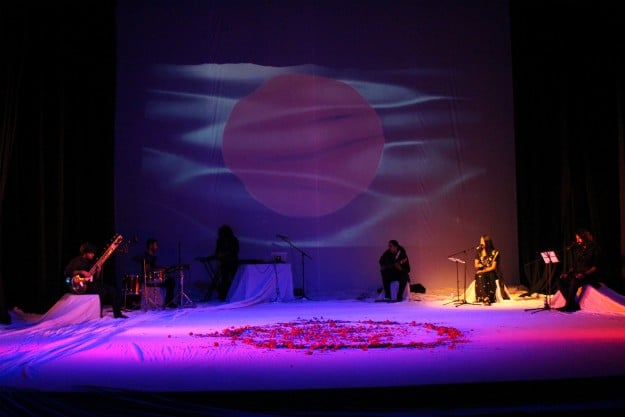
Thematically, the act was divided into two segments. The first half highlighted the concept of touch deprivation in which dancers presented solo dances and duets while depicting the narrative of people bonded in relationships. However, the second half unfolded the counter argument: the right to say no to being touched, representing misogyny and the oppression on women.
While talking to The Express Tribune, the brains behind the play, Kapila Palihawadana – who is also the director and choreographer of the project – revealed how he got inspired when he realised one of his students quit dance classes after she was inappropriately touched in a public bus on her way back home. “I could not see her mentally disturbed to a level where she was prepared to quit something that she was born to do,” he said.
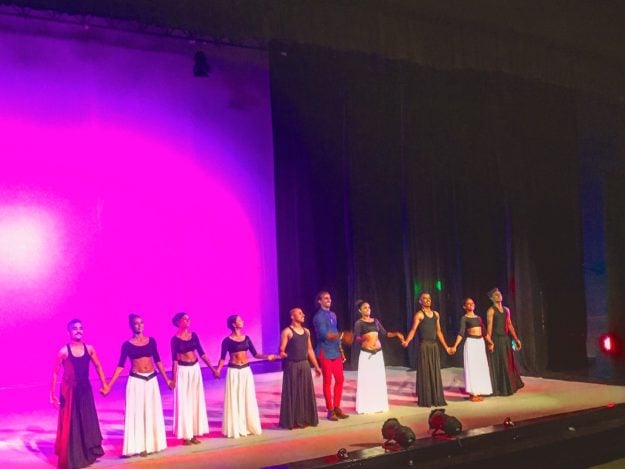
The high-pitched flute, the beat of the drums and constant ticking of the clock cleverly used in the background score did not only set the moods throughout the act but also symbolised anguish, trust, suspense and passing time that is taking us all towards an end.
While defying all odds, the play – setting an incredible examples of physical balance and its undeniable significance in dance and theatre – is crafted to communicate with a universal audience.
Have something to add to the story? Share it in the comments below.



















COMMENTS
Comments are moderated and generally will be posted if they are on-topic and not abusive.
For more information, please see our Comments FAQ